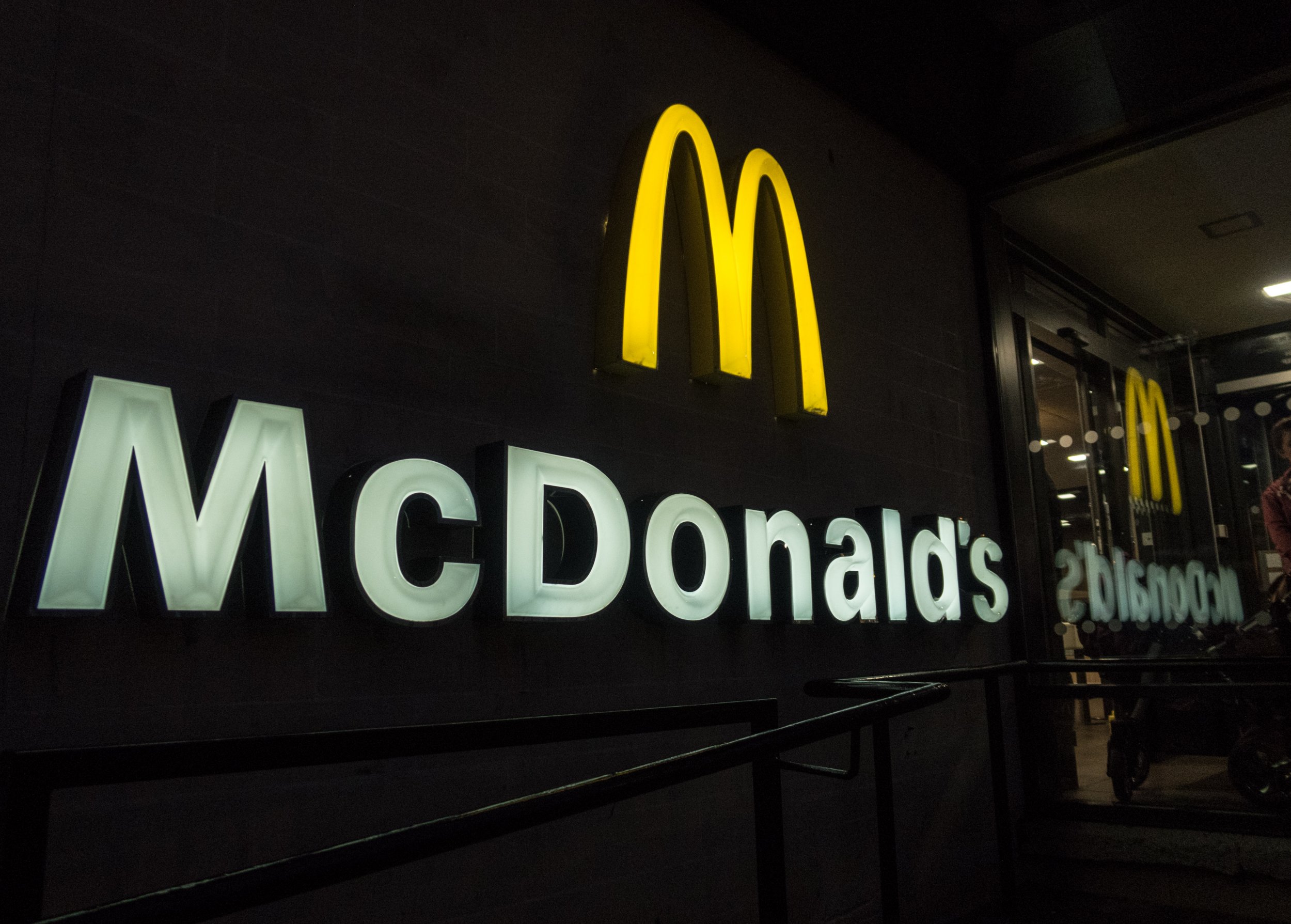
More than 160 people fell ill after eating McDonald's salads tainted with cyclosporiasis, an intestinal illness caused by a parasite. In less than a week, infections were reported across 10 states, prompting the company to temporarily cease the sale of salads at more than 3,000 locations in those and neighboring states.
The first case was reported May 1, the Food and Drug Administration said, and more began to crop up in Illinois and Iowa. Since then, three people have been hospitalized. Officials were unable to locate the cause of the contamination, but in a statement, McDonald's said it removed the lettuce blend used in its salads, provided by a Fresh Express facility in Illinois, from impacted restaurants.
Cyclosporiasis is spread through food contaminated with fecal matter that contain the cyclospora parasite. The FDA said most patients suffer from "frequent, sometimes explosive" diarrhea, which can last a month or more if untreated. Other symptoms include loss of appetite, nausea and fatigue.
The infection has taken a particularly strong hold in Illinois: The state's department of public health has confirmed more than 260 cases of cyclosporiasis since May, and 110 of those infected reported eating a McDonald's salad before becoming ill.
A national food safety lawyer in Iowa filed suit against the fast food conglomerate Thursday on behalf of an anonymous client who "suffered significant health issues" as a result of the infection.
The McDonald's outbreak is one of two national cyclosporiasis outbreaks this month: The Centers for Disease Control reported 237 cases of the infection in four states, mostly concentrated in Wisconsin, caused by contaminated Del Monte vegetable trays the company has since recalled. FDA Commissioner Scott Gottlieb said the two outbreaks are unrelated.
Other contaminants have forced more major food recalls this summer. In June, Kellogg's recalled all packages of Honey Smacks cereal after the FDA reported it was linked to a salmonella outbreak that infected more than 100 people across 33 states. After some retailers continued to stock the cereal on shelves when the recall legally prohibited their sale, the FDA urged consumers to continue to avoid it.
The number of food recalls increased 92 percent since 2012, a 2018 Stericycle Recall Index report found. Bacterial contaminations like salmonella, E.coli and listeria made up more than 30 percent of 2017 recalls. The majority of contaminations occur during processing, when handlers who don't properly wash their hands or clean their workspace transmit pathogens to food.
Uncommon Knowledge
Newsweek is committed to challenging conventional wisdom and finding connections in the search for common ground.
Newsweek is committed to challenging conventional wisdom and finding connections in the search for common ground.
About the writer
Scottie is a Newsweek science fellow and student at the University of Florida. Her work has appeared in Women's Health, the Gainesville ... Read more
To read how Newsweek uses AI as a newsroom tool, Click here.








